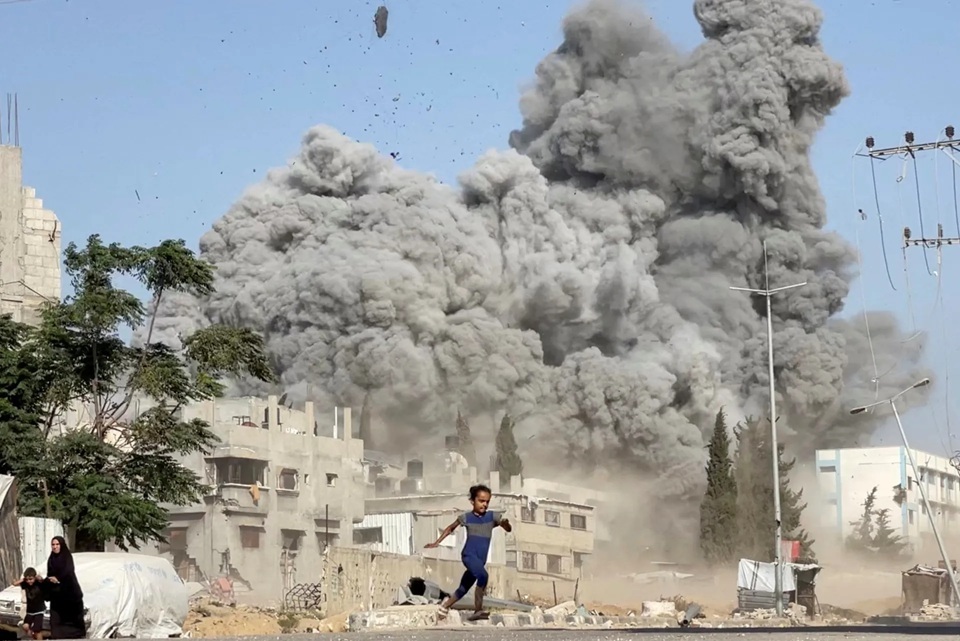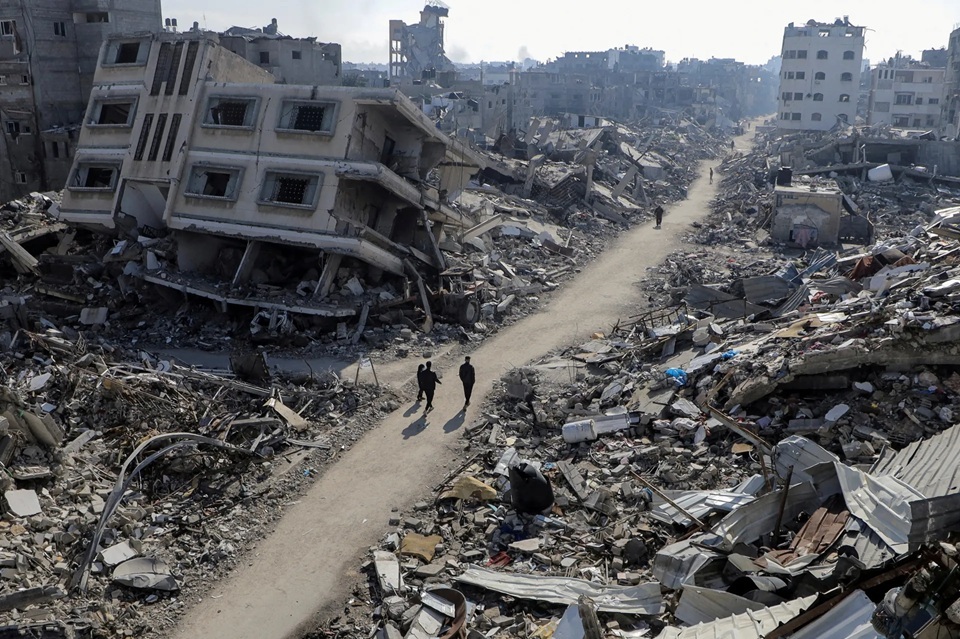Psychology of Savagery and the Roots of Barbarity in the Fake Israeli Society
TEHRAN (Defapress) - The concept of the "chosen people" in Judaism and its psychological and social impacts on the Israel-Palestine conflict is a complex, multifaceted issue requiring deep theological, psychological, and political examination. Rooted in Hebrew scriptures, particularly Deuteronomy and Exodus, the Jewish people are described as "am segulah" (a treasured people) and "goy kadosh" (a holy nation). These terms signify a unique covenantal relationship between God and the Jewish people, established through the Abrahamic and Mosaic covenants. Contrary to superficial interpretations equating this concept with ethnic superiority, rabbinic texts and Jewish philosophical commentaries, such as those by Maimonides, emphasize that "chosenness" denotes not inherent supremacy but moral and spiritual responsibility to uphold divine commandments and promote justice.

However, certain extremist Zionist factions have reinterpreted this idea to justify ethnic superiority or exclusive territorial claims. This distorted interpretation, particularly within the modern political and social context of the Zionist regime, has legitimized violent actions against Palestinians.
This specific reading of the "chosen people" doctrine, intertwined with psychological and social factors, has exacerbated violent behavior. Key among these is the historical and collective trauma of the Jewish people, which has institutionalized a profound sense of insecurity and survivalism in Israeli society. Social psychology, particularly Tajfel and Turner’s Social Identity Theory, demonstrates that strong group identity, especially in traumatized communities, can foster "othering." Here, Palestinians are framed as a threatening "outgroup," diminishing empathy and justifying violence against them. This dynamic is reinforced by propaganda and social conditioning. Israeli media often portrays Palestinians as security threats, and such narratives, combined with education and political discourse, have normalized violence and eroded moral sensitivity. Confirmation bias further entrenches indifference to Palestinian suffering, as individuals selectively accept information that aligns with preexisting beliefs.
These biases and the pervasive influence of Zionist regime propaganda have entrenched deep-seated psychological disorders across the occupied territories, fueling the rampant brutality in the region. Albert Bandura’s concept of moral disengagement explains how individuals justify unethical actions through mechanisms like dehumanization, moral justification, or victim-blaming. In the Zionist regime’s brutal attacks on Palestinians, dehumanizing rhetoric, such as derogatory labels or framing Palestinians as monolithic threats, has allowed settlers to perceive violence as "necessary" or "just." These mechanisms have, in some cases, even led to deriving pleasure from others’ suffering.
Moreover, transgenerational trauma illustrates how the psychological effects of fabricated historical trauma can pass between generations, reinforcing a perceived need for preemptive defense. This insecurity, coupled with Israel’s militaristic culture, has desensitized individuals to others’ suffering and normalized violence. Mandatory military service and the omnipresence of the army, especially in occupied territories, have reduced empathy and amplified a sense of dominance over Palestinians.
The Zionist regime’s militaristic culture, rooted in its garrison-state ethos, plays a pivotal role in this cycle of violence. Prolonged exposure to militarized environments, particularly in the West Bank and Gaza, diminishes empathy, a phenomenon termed compassion fatigue. This is prevalent among soldiers and settlers. These psychological and social factors, combined with extremist interpretations of the "chosen people," have cultivated an aggressive mindset wherein violence against Palestinians is justified as defense of identity and land.

Reports by international organizations, including the UN, Amnesty International, and Human Rights Watch, paint a harrowing picture of the consequences. According to Gaza’s Health Ministry, from October 2023 to November 2024, over 58,000 Palestinians have been martyred, more than half being women and children. The atrocities extend beyond mass killings: the Zionist regime’s savage attacks have razed vast areas of Gaza, displacing 90% of its population. In the West Bank, from October 2023 to October 2024, 719 Palestinians were martyred, primarily due to excessive force, airstrikes, and drone attacks. These figures reflect the extreme violence stemming from entrenched psychological disorders and their impact on innocent civilians.
Beyond fatalities, reports document arbitrary detentions of thousands of Palestinians, with abuses escalating to torture. Settler violence also peaked in 2023, averaging three daily incidents, often with Israeli security forces’ tacit support. These attacks target not only Palestinian property but also religious sites, including East Jerusalem.
The violence is not limited to military operations. The humanitarian crisis in Palestine is catastrophic: UN and Amnesty reports indicate near-total food insecurity or famine in Gaza. Israel stands accused of weaponizing starvation, with its militarized aid distribution system causing hundreds of deaths near aid points. Fuel shortages have crippled hospitals, water systems, and bakeries, while restricted water access (under 5 liters daily per person) has triggered a public health disaster. Roughly 84% of Gaza’s medical facilities are damaged or destroyed, and the denial of prenatal care has increased miscarriages by 300%. These reports unanimously conclude that depriving basic needs is not collateral damage but a calculated strategy to pressure Palestinian civilians.
This amalgam of extremist "chosen people" interpretations, historical trauma, militaristic culture, and psychological mechanisms like moral disengagement and dehumanization has intensified violence in the Israel-Palestine conflict. International reports underscore the scale of human rights violations and humanitarian catastrophe. The situation demands urgent global intervention and a critical reevaluation of narratives and policies perpetuating this cycle. Addressing the conflict’s psychological and social roots and fostering discourse grounded in empathy and justice could mitigate the crisis.
